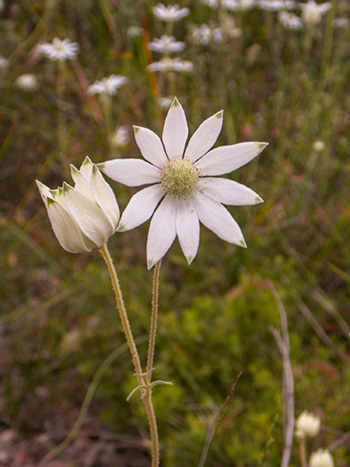 In one of the Gospel accounts this week from Matthew (Mt 13:10-17) Jesus speaks about prophets and righteous people living in ages past who, "...longed to see what you see but did not see it and to hear what you hear but did not hear it…." (Mt 13: 17)
In one of the Gospel accounts this week from Matthew (Mt 13:10-17) Jesus speaks about prophets and righteous people living in ages past who, "...longed to see what you see but did not see it and to hear what you hear but did not hear it…." (Mt 13: 17)
During these uncertain times we can become overwhelmed by anxieties, fears, a feeling of foreboding amongst lockdowns and restrictions placed upon us. These can veil the reality of what Jesus is speaking of in the Gospel story. We don’t live in ages past; we live in the here and now. We see and we hear all that Jesus has to reveal – if we chose to!
I would sense that the best way to live the seeing and hearing that Jesus speaks of so clearly is to remain in hope.
"Our faith in God is expressed in the affirmation of certain truths about God, and our love of God is expressed in and through our love of neighbour. But the nature of hope is different. Hope is more immediate, more direct in the human person's relationship with God. It is more basic, more fundamental. Hope does not hope in God or for God. Hope hopes God. Nothing more, nothing less. Karl Rahner
Hope balances our vision, when our sense of self is shaken, when the world seems unreliable, when our relationships are strained or shattered, and when God seems absent.
Hope helps us see the freedom that is to replace our limitations, the wholeness that is to replace our disintegration and the new life that is to replace the slow death of all that is part of us.
Hope and humour are signs of God's presence that will brighten our lives and the lives of others.
Hope is not achieved alone. It is an expression of love and unity with all who suffer. We give hope to one another by hoping.
We believe and we hope because this is what the resurrection of Jesus is all about. Death cannot sever our bond with God. All our smaller hopes are drawn from this.
Hope is a belief in a positive outcome related to events and circumstances in one's life. Hope implies a certain amount of perseverance — i.e., believing that a positive outcome is possible even when there is some evidence to the contrary.
Hope is often the result of faith in that while hope is an emotion, faith carries a divinely inspired and informed form of positive belief. Hope is typically contrasted with despair, but despair may also refer to a crisis of faith. Hence, when used in a religious context, hope carries a connotation being aware of spiritual truth.
In Catholic theology, hope is one of the three theological virtues (faith, hope, and charity), which are spiritual gifts of God. In contrast to the above, it is not a physical emotion but a spiritual grace.
Hope is distinct from positive thinking, which refers to a therapeutic or systematic process used in psychology for reversing pessimism.
The term false hope refers to a hope based entirely around a fantasy or an extremely unlikely outcome.
Hope was personified in Greek mythology as Elpis. When Pandora opened Pandora's Box, she let out all the evils except one: hope. Apparently, the Greeks considered hope to be as dangerous as all the world's evils. But without hope to accompany all their troubles, humanity was filled with despair. It was a great relief when Pandora revisited her box and let out hope as well.
Let’s rejoice in the gift of our God given hope.